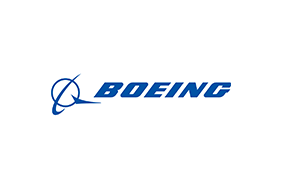Boeing Unveils Model to Show Best Routes to Zero Carbon Future
Published 07-25-22
Submitted by Boeing
- Data modeling tool quantifies the power of aviation strategies to cut emissions
- Sustainable fuels projected to be biggest lever to achieve climate goals, but not only one
- Boeing showcases Future Flight concepts informed by extensive testing and tool
FARNBOROUGH, United Kingdom, July 25, 2022 /CSRwire/ - As the commercial aviation industry maps a path to net zero emissions, Boeing (NYSE: BA) unveiled a new data modeling tool to show the most effective scenarios for reaching the destination by 2050. The model includes consultation with leading universities and will continue to be used with key stakeholders. The company also shared illustrative hydrogen and electric concepts that could power the future of flight.
"There are multiple ways to a future where aviation has zero climate impact. We created Cascade on a foundation of credible data and analytical models to allow users to explore various pathways to net-zero. We think this model will help our industry visualize, for the first time, the real climate impact of each solution, from beginning to end, and to inform the most probable and effective strategies," said Boeing Chief Sustainability Officer Chris Raymond at the Farnborough International Airshow.
Raymond demonstrated Cascade, a data modeling tool Boeing created with consulting from leading universities. The tool appraises Boeing's major paths to decarbonize aviation and their potential power to reduce emissions through:
- Airplane fleet renewal
- Renewable energy sources such as sustainable fuel, hydrogen, electric propulsion
- Operational efficiency improvements
- Advanced technologies
The Cascade model assesses the full lifecycle impacts of renewable energy by accounting for the emissions required to produce, distribute and use alternative energy carriers such as hydrogen, electricity, and Sustainable Aviation Fuels (SAF). Boeing plans to utilize the Cascade tool with airline operators, industry partners, and policymakers to inform when, where, and how different fuel sources intersect with new airplane designs.
"We have to take a holistic view to decarbonization," said Raymond. "And when we do that, it is clear that sustainable aviation fuel (SAF) is a necessary lever. We know it will take a 'SAF and' approach and not a 'SAF or' approach to achieving net-zero by 2050."
As part of the 'SAF and' approach, Boeing continues to advance the safety and viability of other renewable energy sources and their use on aircraft. Since the mid-2000's, Boeing has conducted six hydrogen technology demonstrations with crewed and uncrewed aircraft using hydrogen fuel cells and combustion engines. Last year, Boeing successfully tested a cryotank designed for space with the capacity to hold 16,000 gallons of liquid hydrogen or the energy equivalent of the Jet A fuel in a typical regional jet.
Aside from its work on hydrogen applications, Boeing has invested in electric-powered aircraft through its joint venture Wisk, which is working to bring to market the first all-electric, autonomous air taxi in the U.S. Wisk's current all-electric, eVTOL aircraft – on display at the Farnborough Airshow -- has conducted more than 1,600 successful test flights.
Informed by the company's extensive evaluation and testing of alternative propulsion sources and its research partnerships, Boeing today also shared illustrative 'Future Flight Concepts,' depicting potential hybrid, electric and hydrogen-powered aircraft.
"Our common goal is to enable the societal benefits of air transportation while reaching zero climate impact on our planet. To make that a reality, we believe it is best to learn and share our findings broadly, based on a foundation of data, scientific research and collaboration, as we work together to decarbonize aviation," said Brian Yutko, Boeing chief engineer and vice president of Sustainability and Future Mobility.
Learn more about Boeing's sustainability commitments, partnerships and efforts in its recently released 2022 Sustainability Report and on Boeing's sustainability website.
As a leading global aerospace company, Boeing develops, manufactures and services commercial airplanes, defense products and space systems for customers in more than 150 countries. As a top U.S. exporter, the company leverages the talents of a global supplier base to advance economic opportunity, sustainability and community impact. Boeing's diverse team is committed to innovating for the future, leading with sustainability, and cultivating a culture based on the company's core values of safety, quality and integrity. Join our team and find your purpose at boeing.com/careers.
SOURCE Boeing

Boeing
Boeing
The Boeing Company Boeing is the world's leading aerospace company and the largest manufacturer of commercial jetliners and military aircraft combined. Additionally, Boeing designs and manufactures rotorcraft, electronic and defense systems, missiles, satellites, launch vehicles and advanced information and communication systems. As a major service provider to NASA, Boeing operates the Space Shuttle and International Space Station. The company also provides numerous military and commercial airline support services. Boeing has customers in more than 90 countries around the world and is one of the largest U.S. exporters in terms of sales. Boeing has a long tradition of aerospace leadership and innovation. We continue to expand our product line and services to meet emerging customer needs. Our broad range of capabilities includes creating new, more efficient members of our commercial airplane family; integrating military platforms, defense systems and the warfighter through network-centric operations; creating advanced technology solutions that reach across business units; e-enabling airplanes and providing connectivity on moving platforms; and arranging financing solutions for our customers. Headquartered in Chicago, Boeing employs more than 157,000 people across the United States and in 70 countries. This represents one of the most diverse, talented and innovative workforces anywhere. More than 90,000 of our people hold college degrees -- including nearly 29,000 advanced degrees -- in virtually every business and technical field from approximately 2,700 colleges and universities worldwide. Our enterprise also leverages the talents of hundreds of thousands more skilled people working for Boeing suppliers worldwide. Boeing is an equal opportunity employer supporting diversity in the workplace.
More from Boeing

